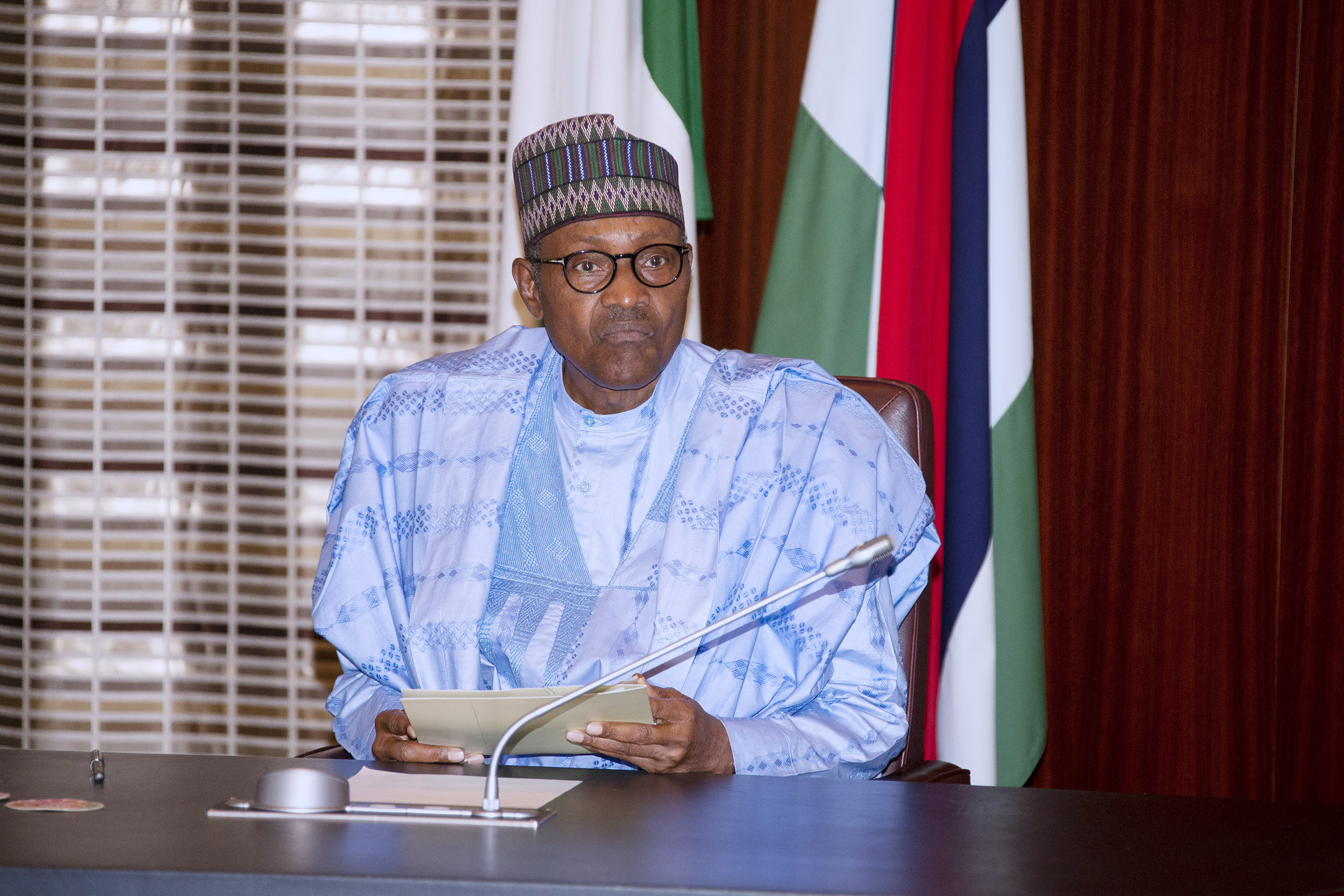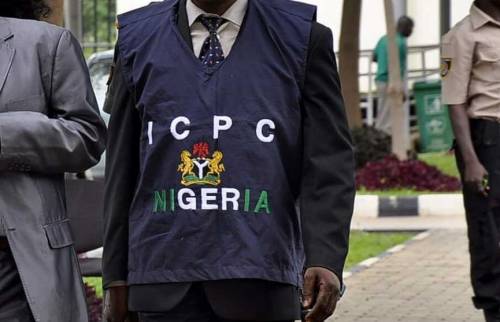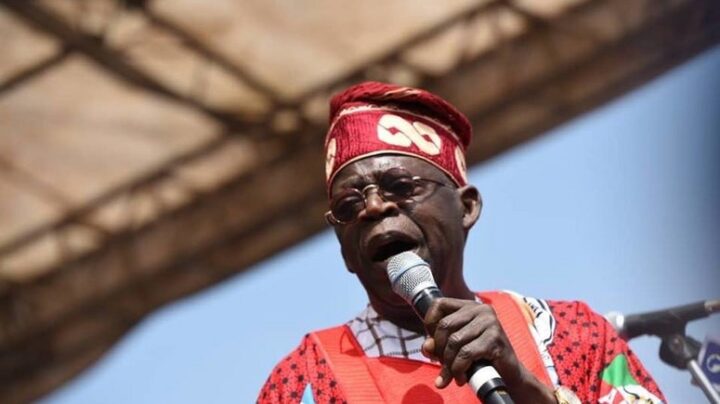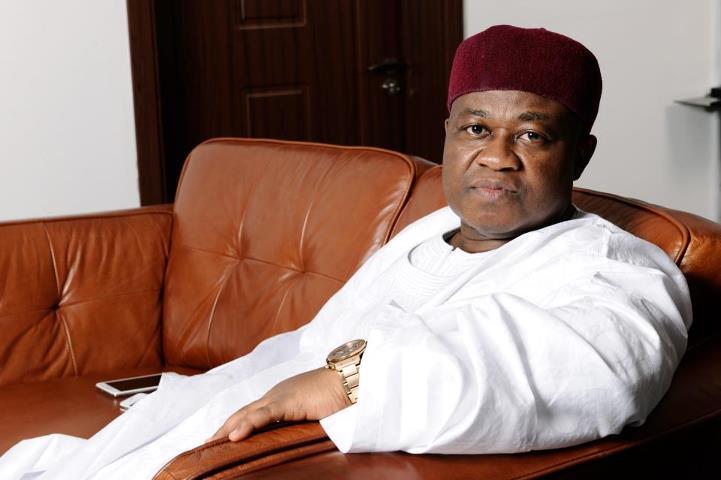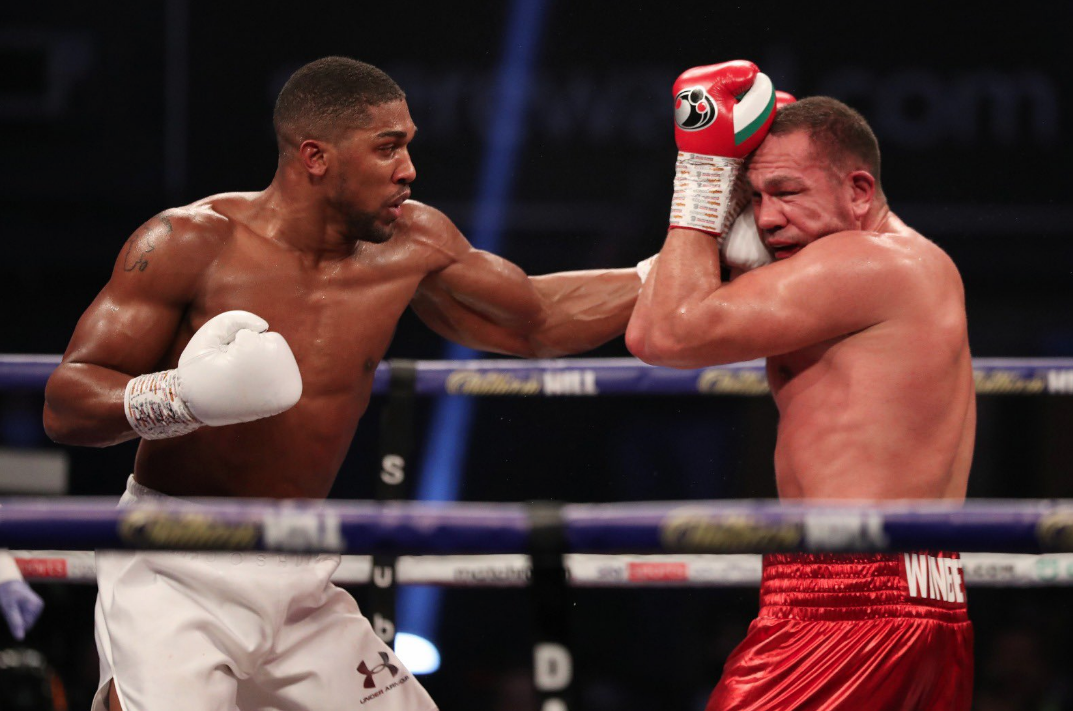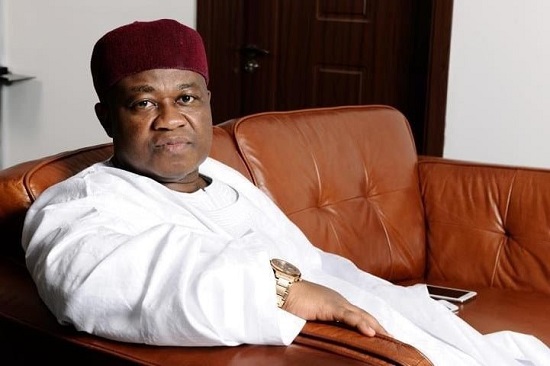PRESIDENT BUHARI RECEIVES ILO TEAM 0A&B; President Muhammadu Buhari addresses the Director-General of International Labour Organisation, (ILO), Mr Guy Ryder and his team during an audience with the President at the State House Abuja. PHOTO; SUNDAY AGHAEZE. AUGUST 1 2019.
Two anecdotes, told by keynote speaker, Professor Adeolu Akande, at a congregation of lawyers in Ibadan, Oyo state last week, drew the graph of the gripping state of the Nigerian union, in the most spellbinding manner. Two other narratives which strengthened his argument, came in the form of news stories which dominated the media during the same week. The first anecdote narrated by Akande, Chairman of the Nigerian Communications Commission (NCC), was one he was told by a Senator whose team had visited Somalia as parliamentary delegation to the war-torn country, some years ago. Somalia, you will recall, is a mono-ethnic nation which bore all indices of nationhood.
With population estimated to be in the neighbourhood of 15 million, Somalia was Africa’s most culturally homogeneous country. The country has two official languages – Somali and Arabic – and its inhabitants were basically Muslims and Sunni. However, in 1991, Somali erupted in a fratricidal war which led to many Somalis fleeing Mogadishu and other places in search of asylum. It was so bad that the UNHCR recorded 975,951 Somali refugees, even as at 2016, with 1.1 million internally displaced persons. They were displaced as a result of periodic droughts, armed violence, as well as other natural disasters.
The parliamentary delegation to Somalia, as part of its itinerary, went on a visit to a camp, among the camps of the 1.1 million displaced persons. Therein, the delegation beheld the calamity of war. The visit had coincided with a time the displaced persons had come for their rations. In a file, looking gaunt and scrawny, they had queued for their meal of a few loafs of bread and water. Then the delegates received the greatest shock of their lives. Peeping up the queue, their tour guide had pointed at one of the haggard-looking persons waiting to be given his own ration. “That man over there was the Chief Justice of Somali,” their guide had said. Dumbfounded, downcast and struck in an unusual way, the delegates must have left Somali pondering on the unmitigated disaster that is a war.
The second anecdote was a supposition. Or a hypothesis. “My Lords, Distinguished SANs here present,” Akande had begun. Supposing a well-dressed man just walked into the hall where the legal luminaries had gathered, he said, gradually building the wall of his supposition, and the man asked to be given the microphone. And upon his request being granted, he informed all gathered that inside the next hall to the one where the lawyers and judges sat, a United States of America Visa process was ongoing and everyone who participated in the stress-less exercise would emerge therefrom as bonafide citizen of the USA. Akande sarcastically submitted that he doubted whether there would be up to two people who would be left in the auditorium where the legal titans gathered. The audience roared, in a concurrence of minds with him.
Advertisement
Inside the Afe Babalola law auditorium were the President of the Nigerian Bar Association (NBA), Akpata, Senior Advocates of Nigeria, (SANs) judges, lawyers and a few other professionals. They all listened with rapt attention. It was at the 2020 Law Week activities of the NBA and the topic for dissection was Nigeria After 60: Building a Nation That Works. In a very brilliant way, Akande had argued, with evidence, that Nigeria was not a nation but a state, or at best, a nation-state. What impaired Nigeria from being qualified to be named a nation, he said, could be found in an Edmund Burke’s seminal work on the French Revolution. Nationhood, he said, was “a complex of crisscrossing loyalties held together by a hierarchy of loyalties” which, broken down to their brass-tacks, means that individuals are still detained by loyalties to different groups and associations to which they belong. Thus, a state can only transform into a nation when it has “successfully secured the loyalty of her citizens above loyalty to any other group or identity.”
Then a few days after, news hit the airwaves about forty three Nigerian Navy ratings who were declared wanted for desertion. According to a circular which was pasted at the Navy Headquarters in Abuja, most of the ratings were serving on naval vessels on foreign missions as at the time they absconded from their ships which had just berthed in Europe.
Last week as well, Al-Jazeera did an expose on what it called the rapidly growing number of Nigerians who were purchasing “golden visas” of foreign citizenships-by-investment. Malta, a Mediterranean island, is one of the countries where these rich Nigerians acquire citizenship for a minimum investment of $947,180 that is 800,000 euros. Located on a Southern European island which consisted of an archipelago in the Mediterranean sea, Malta is South of Italy, east of Tunisia and north of Libya and has a population of about 515,000 people. It is however the world’s tenth smallest country and fourth most densely populated sovereign country, with its capital, Valetta, renowned to be the smallest national capital in Europe. So why leave Nigeria’s huge size, huge population, for a tiny island in Europe?
Aside Malta, about 92 other countries of the world also embark on this Citizenship by Investment Programme. Among them are Caribbean nations like St Kitts and Nevis and Grenada. Their offer is to get wealthy nationals of troubled countries like Nigeria to transmute into their citizens, in return for a specified investment in their country. The fees, according to Al-Jazeera, “are as low” – in its own words (in a Nigeria where exchange rate is threatening to burst the firmament!) – as $100,000 while, for some other countries, fees are in multiple of millions of dollars.
Advertisement
The wealthy ones are a chip off the block of young Nigerians who daily embark on illegal journeys out across the Sahara desert and the Mediterranean to get to Europe. They are hopeless and unable to cope with how their future pines away in Nigeria. When they are given the graphical picture of the perilous risk they are about to take in journeying through the Mediterranean, their response is that living in Nigeria is enough peril.
On the ills that plague Nigeria now and since inception, Professor Akande attributed them to the country’s colonial trajectory. His argument was very logical and anecdotes supplied very supportive of his thesis. Judging by the facts of Nigeria’s coming together, he said, the colonial political architecture bestowed on the country was such that cannot allay the mutual fears of Nigeria’s component units. Upon being lumped together in a purported nationhood, southern and northern Nigeria operated a cat and mouse relationship. This primordial fear has bred many self-centered acts by successive leaders. Buhari’s own response to this fear has been a pristine cronyism that is unexampled in Nigeria’s history. While Southern Nigeria was and is apprehensive of the latter’s demographics, the North was and is afraid of the South’s exposure to western education. Till today, these fears subsist. While Akande asked Nigerians to live together, mindfully reconciling their differences, many have called for a balkanization of Nigeria.
While the Somali Chief Judge at the IDP camp anecdote tells us that we should steer Nigeria off the path of war, in our individual and collective interest, the hemorrhaging of Nigerians from Nigeria on all fronts is a huge testament to the potential Nigerian nation turned into a feckless state in the hands of successive governments in the last 60 years and specifically in a grossly unpardonably manner by Buhari. Professor Akande refused to hold any individual but colonialism responsible for the 60 years barrenness of our projected nationhood. He also refused to apportion any blame on the Buhari government.
In this, I differ from him. Except for Lai Mohammed, Buhari’s coterie of fawners, contractors and the leeches of state who profit from this failure of governance, Nigerians and observers outside her shores have agreed that the country is a failed or failing state. All indices point at this. You do not need any economist to announce to you that under Buhari, Nigeria’s economy is kissing the canvas. If you judge society by the quality of inter-personal relations and interactions, values and norms, Nigeria is at a frightening intersection. Never in the history of the country are Nigerians this afraid of one another. The ease with which we travelled round each of the regions to visit one another has ebbed considerably for fear of the capricious nature of the highway and the miasma of insecurity that hovers round us. We are all hemmed in, in our different locations.
Advertisement
What do I prefer as way out and recipe for combating this unfortunate life under Buhari? Patience and determination never to travel this route again. I once wrote, preparatory to the 2019 election, that whichever decision we made, whoever we voted between Atiku Abubakar and Buhari, we would weather the consequences that would arise therefrom. Granted that a choice between the duo was a non-choice, choosing Buhari and its consequences demand that we stew in our own broth. Let us just hope and pray that things will not worsen beyond this frightening level.
It is also evident that the Buhari government is mentally incapable to understand what to do, or even apprehend a workable solution to arrest this drift. What was hidden from the wise and prudent, which babes and suckling saw and prattled about long ago – to their condemnation – are becoming the singsong of all now. All what we said over the years about Buhari being a mere decorative obelisk in government, an effigy if you like, is coming to fruition now. The President is too far gone, too distant away in his own skewed world to know what operates here. Frustrated by Buhari’s absenteeism, even when he is present in Aso Rock, Wole Soyinka, last week, lamented that no one is in charge of Nigeria.
It is not even that Nigeria is adrift that is the bother. It is that there are too many palace courtiers who encircle the frozen-minded presidency of Buhari. These courtiers are now in a race to outdo one another in the binge to turn our current situation into a fawning escapade. Take for instance the recent House of Representatives’ invitation to Buhari to address a joint session of the National Assembly, aftermath the horrendous murder of dozens of rice farmers in Borno State. In a manner that is bereft of logic, Minister of Justice, Abubakar Malami, spun a legal shawl to cover Buhari’s obvious inadequacies. It was outside of the parliament’s constitutional province to invite the Chief Security Officer of Nigeria to explain why security had gone to the dogs under his watch, Malami said. Only two days ago, barely 24 hours after Buhari drove into his Daura, Katsina hometown for what he called a one-week break, armed men, suspected to be bandits, stormed Government Science Secondary School in Kankara Local Government, a few kilometers from the C-in-C’s dwelling home and killed a security guard, while kidnapping some students, whose numbers were yet unascertained. Yet, Malami feels comfortable spinning constitutional barricade against Buhari explaining what is amiss to Nigerians.
Apparently, we are wedged to the fate of our closet president whose minders have, for five years now, been concerned only with refrigerating him inside Aso Rock and bringing him into the open only for photo-ops. Let us even put law aside, is it not embarrassing that a man who was elected to lead this country, has been kept away from the same people who elected him, for this long? Aside reading other people’s views in prepared speeches, the last time Buhari spoke to Nigerians extempore was at the 2015 Media Chat programme. The few other occasions he tried to do off-the-cuff interviews which could have offered us opportunity to gauge his mind, he left a curious hollow or wonder about his cognition and mental state.
Advertisement
The Nigerian security situation is getting worse. All we get from Buhari and his minions are condolence messages and “President Buhari is shocked.” Hundreds of school children were reportedly abducted in Kankara, with the depressing probability that they may end up like their Chibok and Dapchi predecessors. It is one week, one dispiriting insecurity news. Service Chiefs have become Methuselah and effigies in office. Should we also attribute their unwelcomed overstay and the pervasive insecurity in the land to colonialism, or pure absence of leadership in Nigeria?
Ondo House of Assembly, your name is impunity
Advertisement
There is a lingering parliamentary crisis right now in Ondo State. The State House of Assembly, which was in receipt of and indeed, theatre of the fallout of the last gubernatorial debacle in the state, is yet to unwrap itself from this crisis. Four lawmakers, Favour Tomomowo, Tomide Akinribido and Wale William-Adewinle, and Deputy Speaker, Iroju Ogundeji, had taken the parliament to court for what they considered its impunity in suspending them from office. They contended and the world agreed with them, that they were being vilified for siding with the embattled Deputy Governor of the state, Agboola Ajayi, a political enemy of the governor, Rotimi Akeredolu. They thus refused to sign an impeachment notice for his ouster. Affronted by their suspension, the four lawmakers had taken the parliament to a state High Court sitting in Akure, which ruled that this decision was null and void. Rather than heed the ruling of the court, the House had behaved as law unto itself, refusing to reinstate the lawmakers.
What is going on in the Ondo State legislature is impunity of the highest grade. All men of goodwill must persuade the lawmakers not to continue to disgrace the sacred and hallowed chambers and the course of democracy and revert to the route of sanity. Political considerations and affiliations should never have any bearing on legislation and legislative exercises. Governor Akeredolu should also wade into this drift so as to safeguard his name as a foremost officer of the temple of justice. It is repugnant to hear that legislators in a state administered by a Senior Advocate of Nigeria are bringing good governance and democracy to ridicule with such magisterial impunity.
Advertisement
When death came as a tripod
In the last few weeks, three persons I was acquainted with died in subsequence. They are a man I call the doyen of Nigerian journalism, Gbolabo Ogunsanwo; former Sketch newspaper journalist and ex-Shooting Stars Football Club Chairman, Gbolagade Busari and AIC founder, Ibadan-born Chief Harry Akande. They each deserve heartfelt tributes from me.
Advertisement
Ogunsanwo, I met only once about 20 years ago but that encounter and the words he spoke are still fresh in my memory. A national newspaper columnist based in Lagos had taken me on a visit to Marina in Lagos to the home of a big shot, who was his boss. He promptly “deposited” me inside the big man’s living room. There sat Ogunsanwo regally. When the columnist introduced us, the veteran journalist decorated me with beatific comments that still haven’t evaporated in my mind. I told him of the piece of his that I still remembered with admiration, entitled The Babangida in all of us. He was happy I loved the piece. Then he went into panegyrics for the writer. Whenever he read commentaries like ours, he said, he was gratified that someday when he translated mortality for immortality, there would be a “back” to bequeath. Now, the great weaver of words has become one who shares dinner with gnomes.
Busari, better known as Buso, was my colleague, with whom I served in the Oyo State government, from 2011 and 2015. Personable and adorable, Buso died the second day he arrived from the United States of America. The lesson I picked from his life was his devotion to his children and the course of humanity.
Chief Akande I knew, both in his Ibadan and Lagos homes. Always finicky about his appearance but not a fop and cutting the picture of one who loved life, our relationship was further cemented when we found out we were both beholden to his cousin, now also late, called Uncle Charles Ariyibi. Chief Akande and I last spoke a few years ago when he sent some people to me to intervene in a matter.
I am crestfallen at the departure of these icons and can only pray that the souls of Baba Ogunsanwo, Buso and Chief Akande receive acceptance in the hands of their Creator.
Views expressed by contributors are strictly personal and not of TheCable.

